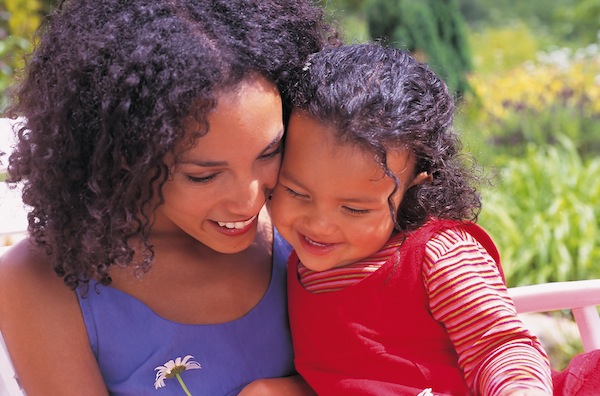
Anyone who has ever spent more than five minutes with a child knows this one inescapable fact: Kids are human sponges, rapidly internalizing and absorbing everything they see and hear.
That's wired into them as members of our species. Compared to horses, ducks, dragonflies and other "precocial" species that are born already equipped with all the skills they'll ever need, "altricial" species such as our own are born utterly ignorant and almost totally defenseless, very gradually gaining skills -- including the crucial constellation of skills comprising self-awareness -- while being sheltered and guided through infancy and youth by adults.
And that's why it behooves us to be very careful about what we do and say around our children: not only what we do and say about them -- their habits, their appearance, their choice in friends or food or clothes -- but (and perhaps even more importantly) about ourselves.
If young Homo sapiens, along with young chimpanzees, kangaroos and other altricial species, learn by observing their trusted elders, then among the countless things they learn from adults is how we treat ourselves and how we feel about ourselves. Unfortunately, we might not feel great about ourselves. Thus, we might not treat ourselves very well at all.
In fact, we might treat ourselves quite harshly. I learned this firsthand at a very young age.
My earliest memories include my mother -- a statuesque, striking NYU grad with excellent taste in accessories and clothes -- glaring at herself in mirrors and saying scathing things about what she saw.
"You ugly pig," she told her reflection -- not once or twice but virtually every day.
Watching this -- watching my beloved protector, my model for all things human and grown-up, my smart and wonderful and all-powerful mother who made nearly all of the decisions that shaped my young life calling herself an ugly pig and other, even darker epithets -- formed the foundation of my understanding about being an adult in the world.
"OK -- grownups are intensely self-critical," I can imagine myself thinking (albeit in toddler-talk). "No matter how everyone else might perceive them, adults -- especially smart adults, like Mom -- can see the real truth about themselves. And it is very important for adults to keep reminding themselves of these truths, however horrible they are.
"And, as a miniature version of Mom, I must be just as keenly self-observant and thus self-critical as she is. Also, as a miniature version of Mom, I am destined to grow up looking exactly like her. Thus I too will be an ugly pig, no matter how others might perceive me."
And yes, this is exactly what I spent the next few decades believing. My mother loved me, and never wanted me to have low self-esteem. Yet, simply by rapt observation, I "inherited" hers.
We need not overpraise or indulge ourselves in front of our children, in hopes that this will teach them to love themselves. Instead, the best strategy -- for stabilizing our own self-esteem and theirs -- is reality. Recognize that all of us have weak points and strong points -- because, again, we're human. Acknowledge the weak ones without fixating on them, and celebrate the strong ones.
Make this a practice because, whether you like it or not, you're being watched.
 Anneli Rufus is the author of Party of One: A Loner’s Manifesto, Stuck: Why We Can’t (or Won’t) Move On, and her newest release Unworthy: How to Stop Hating Yourself, now out in paperback. She has been a contributor to sites such as Salon.com, The Daily Beast, and Alternet. Anneli blogs about low self-esteem for Spirituality & Health, Huffington Post, and Psychology Today.
Anneli Rufus is the author of Party of One: A Loner’s Manifesto, Stuck: Why We Can’t (or Won’t) Move On, and her newest release Unworthy: How to Stop Hating Yourself, now out in paperback. She has been a contributor to sites such as Salon.com, The Daily Beast, and Alternet. Anneli blogs about low self-esteem for Spirituality & Health, Huffington Post, and Psychology Today.


























